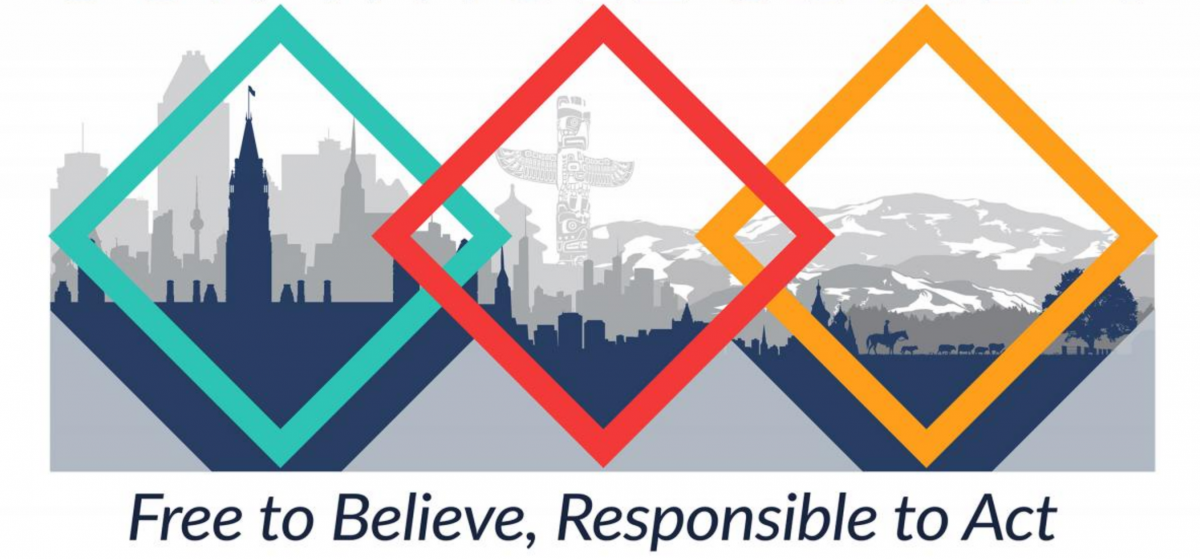Our Whole Society - Online 2021
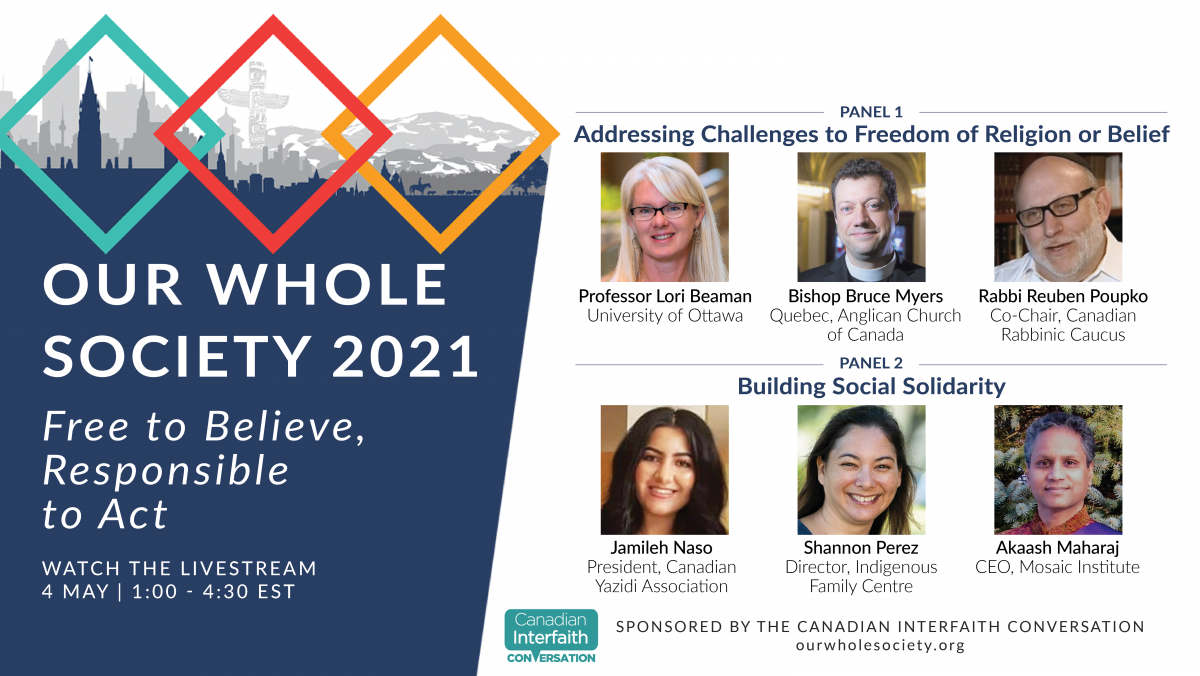
Sponsored by the Canadian Interfaith Conversation
On May 4, 2021 the Canadian Interfaith Conversation sponsored an online version of “Our Whole Society,” the fifth iteration of a conference that aims to foster a new dialogue about the changing role of religion in Canadian society.
Faites défiler vers le bas pour la traduction française | Scroll down for the French translation
About Our Whole Society
In this conference, we are building on an approach to public discourse that seeks to draw on insights from diverse religious and secular traditions of thought to find common ground that helps us to build a society that is more unified amidst its diversity. The conference theme invites exploration of Article 18 of the Universal Declaration of Human Rights: the right to freedom of thought, conscience, or religion. The same rights are protected under Section 2 of the Canadian Charter of Rights and Freedoms and complemented by Article 12(1) in the United Nations Declaration on the Rights of Indigenous Peoples. The Charter Vision of the Canadian Interfaith Conversation references these foundational texts when it commits to work for the greater realization of the fundamental freedom of conscience and religion for the sake of the common good and engaged citizenship.
We will be meeting in a context shaped by our society’s response to the coronavirus pandemic. This disease has left no one in the world unaffected, and our social response to it has raised deep and enduring questions about the values that bind us together. It is timely, therefore, to reflect upon the values and aspirations we hold as a society. These include a belief in human dignity and rights and a desire for greater social solidarity. This conference will allow us to explore these themes, as we consider the relationship between being the freedom to believe and the responsibility to act to create a better society for all.
PANEL 1: Addressing challenges to freedom of religion or belief (1:00 p.m. - 2:30 p.m. ET)
Canada’s legacy of protecting religious freedom is mixed. Early on the First Nations of Canada experienced the denial and suppression of their right to freedom of religion or belief. Traditional spiritual and religious ceremonies were banned and suppressed, while the Indian residential school system was designed to replace their own identity with another one. Despite long-standing legal protections for religious freedom reaching back to the Quebec Act of 1774 through to the 1982 Charter, this right continues to be debated in public and contested in court. Furthermore, new challenges are emerging from social media and other on-line platforms, which propagates hatred and prejudice that can generate real-world violence and persecution.
What role does protection for freedom of religion or belief play in fostering social understanding in a diverse Canadian society, in fostering reconciliation? To what extent does this freedom extend to protections for organizations, institutions, or even the natural environment? What new and old challenges are facing traditional, religious, spiritual and other communities as they seek to exercise these rights? How should we respond to the growth of religion- based prejudice in Canadian society, especially as it affects Indigenous and minority populations?
Panelists:
Professor Lori Beaman (Professor, University of Ottawa)
Bishop Bruce Myers (Bishop of Quebec, Anglican Church of Canada)
Rabbi Reuben Poupko (co-Chair, Canadian Rabbinic Caucus)
PANEL 2: Building social solidarity (3:00 p.m. - 4:30 p.m. ET)
It seems that almost every social cleavage in Canada is deepening under the pressures of a divisive political discourse. These cleavages can be traced according to region, language, identity, class, or the religious-secular divide. Furthermore, the need to build social solidarity acquires greater urgency in the wake of the coronavirus pandemic.
What does it take to work across these divides and heal the body politic? What is the potential and actual contribution of religion and spirituality to this process? Where do we see new approaches to addressing inequality, fostering reconciliation, responding to the climate crisis, and building community at the grassroots of society?
Panelists:
Jamileh Naso (President, Canadian Yazidi Association)
Shannon Perez (Director, Indigenous Family Centre)
Akaash Maharaj (CEO, Mosaic Institute)
Biographies of OWS Panelists
PANEL 1
|
Professor Lori Beaman (Professor, University of Ottawa) Lori G. Beaman is the Canada Research Chair in Religious Diversity and Social Change at the University of Ottawa. She received her PhD at the University of New Brunswick, Fredericton (1996). Beaman has taught at the University of Lethbridge, Concordia University and University of Ottawa, and has published widely on religious diversity, religious freedom, and religion in the public sphere. She previously directed the Religion and Diversity Project and is currently the Principal Investigator of the Nonreligion in a Complex Future (NCF) Project, a $2.5 million, 7-year Partnership Grant funded by the Social Sciences and Humanities Research Council and housed at the University of Ottawa. |
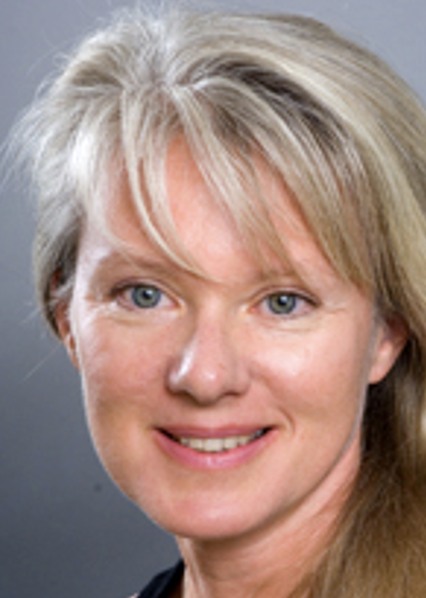 |
|
Bishop Bruce Myers (Bishop of Quebec, Anglican Church of Canada) The Right Reverend Bruce Joseph Andrew Myers OGS is the thirteenth Anglican bishop of Quebec. The son of Quebecers and raised on a farm in Glengarry County, Ontario, Bishop Bruce worked as a journalist and broadcaster for the better part of a decade, as a parliamentary correspondent in Ottawa and Quebec City. His ordained ministry began in 2004 as a deacon and assistant curate at the Cathedral of the Holy Trinity and in the Deanery of Quebec. Bishop Bruce has studied theology and ministry at McGill University, Montreal Diocesan Theological College, the Bossey Ecumenical Institute and the University of Geneva. He recently completed a doctor of ministry degree, specializing in ecumenical studies, at Saint Paul University in Ottawa. |
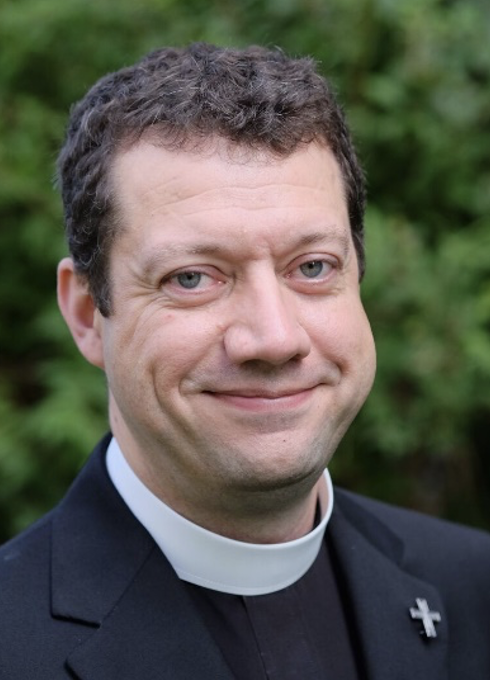 |
|
Rabbi Reuben Poupko (Co-Chair, Canadian Rabbinic Caucus) Rabbi Reuben Poupko is the Rabbi of Beth Israel Beth Aaron Congregation, an Orthodox synagogue in Montreal, Quebec, Canada. Rabbi Poupko's very first congregation was at the Beth Zion Congregation in Oshawa, Ontario, Canada. Rabbi Poupko has served in a variety of leadership roles both locally and nationally in the Canada-Israel Committee and the Canadian Jewish Congress. He is currently serving on the executive of Federation CJA and is chairing the Rabbinic Caucus. |
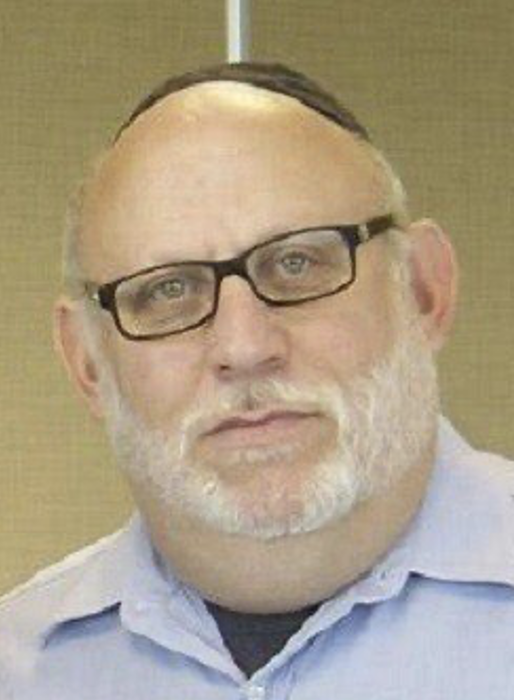 |
PANEL 2
|
Jamileh Naso (President, Canadian Yazidi Association) Jamileh Naso is President of the Canadian Yazidi Association, and Board member of the Manitoba Multifaith Council. Jamileh was 4 years old when she came to Canada as a refugee. She currently works as an activist and spokesperson for the Yazidi community, bringing attention to the genocide of her people, through a project called Operation Ezra, the only community-wide multi-faith initiative in North America of its kind, to privately sponsor and resettle Yazidi refugees to Winnipeg, Manitoba. |
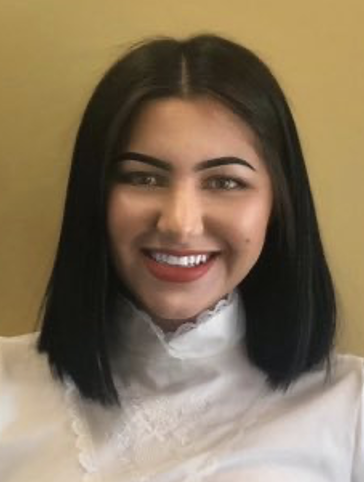 |
|
Shannon Perez (Co-Director, Indigenous Family Centre) Shannon Perez recently started taking on the role of Co-Director for the Indigenous Family Centre and has worked as Justice and Reconciliation Mobilizer for the Christian Reformed Church in North America (CRCNA) Canadian Indigenous Ministry Committee. Perez lives in Winnipeg and is from the Sayisi Dene First Nation in northern Manitoba. She served on the board at IFC for eight years, was a trustee for the Sayisi Dene First Nation Relocation Settlement Trust, and currently serves on the board of her children’s daycare for the past 10 years. |
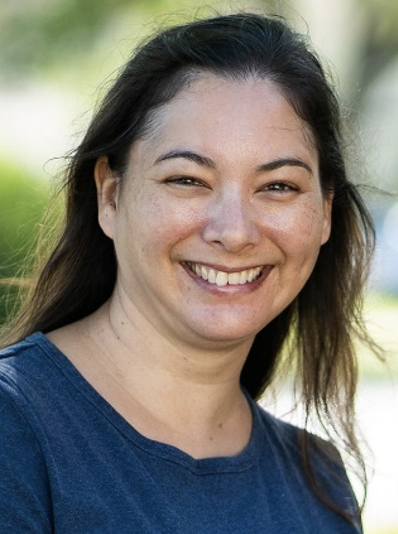 |
|
Akaash Maharaj (CEO, Mosaic Institute) Akaash Maharaj is CEO of Mosaic Institute, and leads its work strengthening pluralism within societies and peace between states. Mosaic brings together people, communities, and nations, to foster mutual understanding and to resolve conflicts. He also serves as Ambassador-at-Large for the Global Organization of Parliamentarians Against Corruption, and has addressed the United Nations on international prosecution of Crimes Against Humanity. Outside of his professional life, he is a national athlete for Canada, and was a triple gold medallist at the International Championships of Equestrian Skill‑at‑Arms. Akaash earned his Master of Arts from Oxford University, and was the first overseas student elected President of the student government in Oxford’s history. He completed additional studies at the Sorbonne University and the United Nations University. |
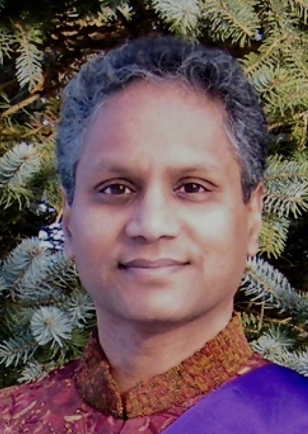 |
Le 4 mai 2021, la Conversation interreligieuse canadienne organisée une version en ligne de « Une société complète », la cinquième reprise d’une conférence qui vise à promouvoir un nouveau dialogue sur la place changeante de la religion dans la société canadienne.
Qu’est-ce que « Une société complète »?
Dans cette conférence, nous nous appuyons sur une méthode de discours public qui cherche à profiter des réflexions de diverses traditions de pensée religieuses et séculières pour trouver un terrain commun qui nous aide à bâtir une société plus unifiée dans sa diversité. Le thème de la conférence nous invite à réfléchir à l’article 18 de la Déclaration universelle des droits de l’homme : le droit à la liberté de pensée, de conscience et de religion. Ces mêmes droits sont protégés par l’article 2 de la Charte canadienne des droits et libertés et renforcés par le paragraphe 12(1) de la Déclaration des Nations Unies sur les droits des peuples autochtones. La vision sur la Charte de la Conversation interreligieuse canadienne s’appuie sur ces textes fondamentaux quand elle s’engage à travailler pour une meilleure concrétisation de la liberté fondamentale de conscience et de religion en vue du bien commun et d’une citoyenneté engagée.
Nous nous réunirons dans un contexte défini par la réaction de notre société à la pandémie du coronavirus. Cette maladie n’a laissé personne au monde indifférent, et notre réaction sociale a suscité des questions profondes et durables sur les valeurs qui nous réunissent ensemble. Il est donc à propos de réfléchir aux valeurs et aux aspirations que nous professons comme société. Elles incluent la croyance à la dignité humaine et aux droits de la personne et le désir d’une plus grande solidarité sociale. Cette conférence nous permettra d’approfondir ces thèmes pendant que nous réfléchirons à la relation entre la liberté de croyance et la responsabilité d’agir afin de créer une meilleure société pour tous.
PREMIER GROUPE D’EXPERTS : Lutte contre les obstacles à la liberté de religion ou de croyance (13 h 00 à 14 h 30, heure de l’Est)
La tradition canadienne de protection de la liberté religieuse n’est pas sans tache. Au début, les Premières Nations du Canada ont subi le rejet et la suppression de leur droit à la liberté de religion ou de croyance. Les cérémonies spirituelles et religieuses traditionnelles ont été interdites et supprimées, tandis que le système des pensionnats indiens a été conçu pour remplacer leur identité par une autre. Malgré les protections de longue date de la liberté religieuse, qui remontent à l’Acte de Québec de 1774 et à la Charte de 1982, ce droit continue de faire l’objet de débats publics et de contestations en cour. De plus, de nouvelles contestations surgissent dans les médias sociaux et sur d’autres plates-formes en ligne, et elles propagent de la haine et des préjugés qui peuvent provoquer de la violence et des persécutions bien concrètes.
Quelle est la place de la protection de la liberté de religion ou de croyance dans la promotion d’une compréhension sociale et d’une réconciliation dans une société canadienne diversifiée? Dans quelle mesure cette liberté s’étend-elle à la protection des organisations, des institutions ou même de l’environnement naturel? À quelles difficultés, nouvelles et anciennes, se heurtent les communautés traditionnelles, religieuses, spirituelles et autres pendant qu’elles cherchent à exercer ces droits? Comment devrions-nous faire face à l’intensification des préjugés fondés sur la religion dans la société canadienne, particulièrement en ce qu’ils touchent les populations autochtones et minoritaires?Participants :
Professeure Lori Beaman (professeure, Université d’Ottawa)
Mgr Bruce Myers (évêque de Québec, Église anglicane du Canada)
Rabbin Reuben Poupko (coprésident, Caucus rabbinique du Canada)
DEUXIÈME GROUPE D’EXPERTS : Renforcement de la solidarité sociale (15 h 00 à 16 h 30, heure de l’Est)
Il semble que presque tous les clivages sociaux au Canada s’élargissent sous les pressions d’un discours politique semeur de division. Ces clivages peuvent être définis selon la région, la langue, l’identité, la classe ainsi que l’opposition entre religieux et séculier. De plus, le besoin d’établir une solidarité sociale revêt une urgence plus grande à la suite de la pandémie du coronavirus.
Qu’est-ce qui est nécessaire pour surmonter ces divisions et guérir le corps politique? Quelle est la contribution potentielle et actuelle de la religion et de la spiritualité dans ce processus? Où voyons-nous de nouvelles démarches pour lutter contre les inégalités, promouvoir la réconciliation, résoudre la crise climatique et renforcer le sens communautaire à la base de la société?
Participants :
Jamileh Naso (présidente, Canadian Yazidi Association)
Shannon Perez (directrice adjointe, Indigenous Family Centre)
Akaash Maharaj (PDG, Mosaic Institute)
Biographies d’experts
PREMIER GROUPE D’EXPERTS
|
La professeure Lori Beaman (professeure, Université d’Ottawa) Lori G. Beaman est titulaire de la Chaire de recherche du Canada sur la diversité religieuse et le changement social à l'Université d'Ottawa. Elle a obtenu son doctorat à l'Université du Nouveau-Brunswick, à Fredericton (1996). Mme Beaman a enseigné à l'Université de Lethbridge, à l'Université Concordia et à l'Université d'Ottawa, et elle a publié de nombreux articles sur la diversité religieuse, la liberté de religion et la religion dans la sphère publique. Elle a déjà dirigé le projet « Religion et diversité » et est actuellement la chercheuse principale du projet Nonreligion in a Complex Future, subvention de partenariat de 2,5 millions de dollars sur sept ans, financée par le Conseil de recherches en sciences humaines et logée à l'Université d'Ottawa. |
 |
|
Mgr Bruce Myers (évêque de Québec, Église anglicane du Canada) Le très révérend Bruce Joseph Andrew Myers, OGS, est le treizième évêque anglican de Québec. Fils de Québécois et élevé sur une ferme dans le comté de Glengarry, en Ontario, Mgr Bruce a travaillé comme journaliste et diffuseur pendant la majeure partie d'une décennie, en tant que correspondant parlementaire à Ottawa et à Québec. Son ministère ordonné a débuté en 2004 comme diacre et vicaire adjoint à la cathédrale de la Sainte-Trinité et dans le doyenné de Québec. Mgr Bruce a étudié la théologie et le ministère à l'Université McGill, au Collège théologique diocésain de Montréal, à l'Institut œcuménique de Bossey et à l'Université de Genève. Il a récemment obtenu un doctorat en théologie pastorale, avec spécialisation en études œcuméniques, à l'Université Saint-Paul d'Ottawa. |
 |
|
Le rabbin Reuben Poupko (coprésident du Caucus rabbinique du Canada) Le rabbin Reuben Poupko est le rabbin de la congrégation Beth Israel Beth Aaron, synagogue orthodoxe à Montréal (Québec). La toute première congrégation du rabbin Poupko avait été la congrégation Beth Zion à Oshawa (Ontario). Le rabbin Poupko a occupé divers rôles de direction, tant sur le plan local que national, au sein du Comité Canada-Israël et du Congrès juif canadien. Il est actuellement membre du bureau de direction de la Fédération CJA et préside le Caucus rabbinique. |
 |
DEUXIÈME GROUPE D’EXPERTS :
|
Jamileh Naso (présidente de l’Association yézidie du Canada) Jamileh Naso est présidente de l’Association yézidie du Canada et membre du conseil d'administration du Conseil multiconfessionnel du Manitoba. Jamileh avait 4 ans lorsqu'elle est arrivée au Canada en tant que réfugiée. Elle travaille aujourd’hui comme militante et porte-parole de la communauté yézidie pour attirer l'attention sur le génocide de son peuple, dans le cadre d'un projet appelé Operation Ezra, la seule initiative communautaire multiconfessionnelle de ce type en Amérique du Nord, qui vise à parrainer à titre privé et à réinstaller des réfugiés yézidis à Winnipeg, au Manitoba. |
 |
|
Shannon Perez (directrice adjointe du Centre familial autochtone) Directrice adjointe du Centre familial autochtone, Shannon Perez fait de la mobilisation pour la justice et la réconciliation au nom du Comité du ministère autochtone canadien de l'Église réformée chrétienne en Amérique du Nord (CRC-NA). Dénée du Manitoba, Mme Perez vit à Winnipeg. Elle a siégé au conseil d'administration du CFA pendant huit ans, a été administratrice du Syisi Dené First Nation Relocation Settlement Trust [Fonds pour la relocalisation de la Première Nation Syisi Déné] et a siégé au conseil d'administration de la garderie de ses enfants pendant huit ans. |
 |
|
Akaash Maharaj (PDG de l’institut Mosaic) Akaash Maharaj est le PDG de l'institut Mosaic, dont il dirige les travaux visant à renforcer le pluralisme au sein des sociétés et la paix entre les États. Mosaic rassemble des personnes, des communautés et des nations dans le but de favoriser la compréhension mutuelle et de résoudre les conflits. Akaash est également ambassadeur itinérant de l'Organisation mondiale des parlementaires contre la corruption et il a pris la parole devant les Nations unies sur les poursuites internationales en matière de crimes contre l'humanité. En dehors de sa vie professionnelle, il est athlète de niveau national pour le Canada, et il a été triple médaillé d'or aux Championnats équestres internationaux de maniement des armes. Akaash a obtenu une maîtrise ès lettres de l'université d'Oxford et a été le premier étudiant étranger élu président du parlement étudiant dans l'histoire de cette université. Il a effectué des études complémentaires à la Sorbonne et à l'Université des Nations unies. |
 |
The Law Society of Ontario has approved 3 hours EDI (Equity, Diversity, and Inclusion) professionalism content for participation in this conference. Le Barreau de l'Ontario a approuvé 3 heures de professionnalisme en égalité, diversité et inclusion (« E, D et I ») pour participer à cette conférence.

